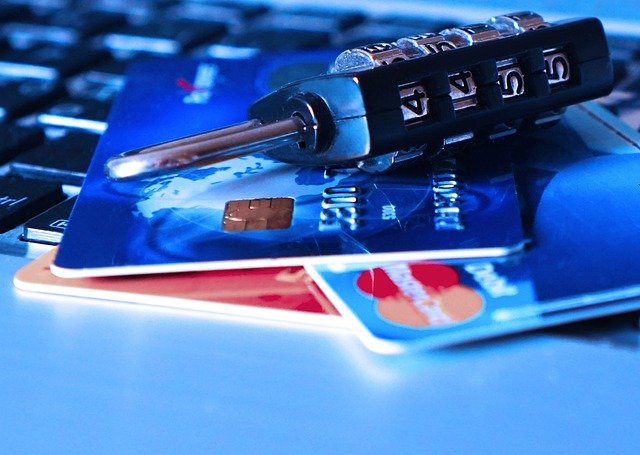What Security Apps Do and Why They’re Essential for Protecting Your Digital Life
In today's interconnected world, our smartphones, tablets, and computers have become treasure troves of personal information, making them prime targets for cybercriminals. Security apps serve as digital bodyguards, protecting your devices from malware, data breaches, and identity theft. As cyber threats continue to evolve and multiply, understanding how these protective tools work has become crucial for anyone who values their digital privacy and security.

How Do Mobile and Desktop Security Apps Function?
When you explore the key functions of mobile and desktop security apps, you’ll discover they operate through multiple layers of protection. These applications continuously scan your device for suspicious activity, monitoring file downloads, app installations, and network connections in real-time. They maintain extensive databases of known malware signatures and use behavioral analysis to identify potential threats that haven’t been previously cataloged.
Desktop security apps typically offer more comprehensive protection due to greater processing power and storage capacity. They can perform deep system scans, monitor registry changes, and analyze network traffic patterns. Mobile security apps, while more limited by device constraints, focus on app permissions, SMS filtering, and safe browsing protection. Both versions regularly update their threat databases to stay current with emerging security risks.
What’s the Difference Between Free and Premium Security Apps?
When you learn the difference between free and premium security apps, the distinction often comes down to scope and features. Free versions typically provide basic antivirus scanning, limited malware detection, and essential firewall protection. These offerings serve as entry-level solutions that can handle common threats but may lack advanced features.
Premium security apps offer comprehensive protection including real-time scanning, advanced threat detection, VPN services, password management, and identity monitoring. They also provide priority customer support, automatic updates, and protection across multiple devices. Premium versions often include parental controls, secure file deletion, and advanced privacy features that go beyond basic malware protection.
How Do Modern Security Apps Integrate with Cloud Storage?
The way modern security apps integrate with cloud storage has revolutionized digital protection. These applications can scan files before they’re uploaded to cloud services, ensuring infected documents don’t contaminate your online storage. They also monitor cloud account activity for suspicious login attempts or unauthorized file access.
Cloud integration enables security apps to maintain synchronized protection across all your devices. When a threat is detected on one device, the information is immediately shared with your other protected devices through secure cloud connections. This creates a unified security ecosystem that adapts and learns from threats encountered anywhere in your digital environment.
Why Are Security Apps Crucial for Preventing Identity Theft?
Protecting against identity theft in an increasingly mobile-first world requires sophisticated security measures that go beyond traditional antivirus protection. Security apps now include identity monitoring features that scan the dark web for compromised personal information, alert users to data breaches affecting their accounts, and provide credit monitoring services.
These applications can detect phishing attempts through suspicious links, fake websites, and fraudulent emails before users inadvertently share sensitive information. They also monitor app permissions to prevent malicious software from accessing personal data like contacts, photos, or financial information stored on devices.
What Unique Security Challenges Face Americans Today?
Americans face distinctive cybersecurity challenges that make security apps particularly essential. The United States experiences some of the highest rates of cybercrime globally, with ransomware attacks increasing by over 40% annually. American consumers also face targeted attacks from international cybercriminal organizations specifically designed to exploit popular U.S. banking, shopping, and social media platforms.
The prevalence of public Wi-Fi networks in American cities, airports, and businesses creates additional vulnerabilities that security apps help address through VPN protection and network monitoring. Additionally, the high adoption rate of smart home devices and IoT technology in American households creates expanded attack surfaces that modern security apps are designed to protect.
How Do Security App Costs Compare Across Different Providers?
Understanding security app pricing helps you make informed decisions about digital protection investments. The market offers solutions ranging from completely free options to comprehensive enterprise-level packages.
| Provider | Plan Type | Annual Cost | Key Features |
|---|---|---|---|
| Norton | 360 Standard | $99.99 | Antivirus, firewall, password manager |
| McAfee | Total Protection | $89.99 | Multi-device protection, VPN, identity monitoring |
| Bitdefender | Internet Security | $59.99 | Advanced threat detection, anti-phishing |
| Kaspersky | Internet Security | $79.99 | Real-time protection, safe banking tools |
| Avast | Premium Security | $69.99 | Wi-Fi security, ransomware protection |
Prices, rates, or cost estimates mentioned in this article are based on the latest available information but may change over time. Independent research is advised before making financial decisions.
Free alternatives like Windows Defender, Avast Free, and AVG offer basic protection suitable for casual users, while premium options provide comprehensive security suites with advanced features like VPN services, identity theft protection, and multi-device coverage.
Conclusion
Security apps have evolved from simple antivirus tools into comprehensive digital protection platforms essential for modern life. Whether you choose free or premium options, these applications provide crucial defenses against increasingly sophisticated cyber threats. As our digital footprints continue to expand and cybercriminals develop new attack methods, investing in robust security apps becomes not just advisable but necessary for protecting your personal information, financial data, and digital identity in an interconnected world.




